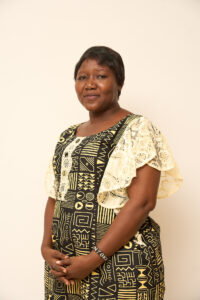“We did not bring you here; we did not cause war in your country, don’t disturb us” we were told.
Laments Nyoka, one of the refugees in Kiryandongo camp – Uganda- April 2017
The pleasant and cool morning of Kampala quickly turned into a hot and windy day as we drove towards Kiryandongo – MagaMaga Refugee Camp in Bweyale – Uganda. After a short ladies chitchat with the team, we began updating each other on the latest news from home (South Sudan) and as it had been since July 2016, no good news comes from South Sudan apart from the news of attacks, killings, rapes and exodus of the people from their villages. “My heart always drops, whenever I see an incoming call from South Sudan,” said one of my colleagues. It’s the obvious sad news; we have all had the same experience. Suddenly we were all quiet, lost in our thoughts as we try to visualize what lies ahead of us.
As the conflict took its toil in the Equatoria region after July 2016, the merciless arms of violence killed hundreds, destroyed livelihood, burnt down villages and drove hundreds of thousands of families from their villages into Uganda worsening the already complex situation. Not knowing what to anticipate as we approach Kiryandongo, we held our hands and prayed.
Hitting the rough and dusty road and as the nice bungalows vanish, clusters of mud and grass hatched huts emerged, then one after the other the sight of bare chest and bare foot children caught our attention. This quickly reminded me of the 1990s “Jaborona” and “Jebel Aulia” camps in Khartoum – Sudan. Memories that had stuck in my mind since childhood; of how South Sudanese survived the discrimination of the Sudan government and the police brutality, the feeling of sleeping on an empty stomach and of the United Nations World Food Programme (UN-WFP) and Fellowship for African Relief (FAR) as our lifeline; and here we are again; Kiryandongo refugees settlement – Uganda.
The women, girls and some few men quickly gathered and welcomed us in the South Sudanese way with songs and dances, but this quickly turned into a serious talk. Nyachan stood up and said “ Life here is not easy for us, just look around you, do you call this life? But what choice do we have? It is the war of Kiir and Machar that brought us here”. “People here do not understand us due to language barrier, many of us are not registered yet, we are asked to pay money to get the refugee cards, we are being pushed around, but what option do we have and where do we get money?” Nyachan explained in a strong and desperate voice.
Fleeing South Sudan
It was 2016 and there was no sign of improved security in the town of Malakal amidst continuous violations of the ceasefire accord signed by the warring factions. Things weren’t getting any better; Nyachan lost her husband and brother in Malakal when a heavily armed government forces attacked the Protection of Civilian Site (PoCs) in February 2016. The PoCs was no longer safe. Nyachan had to make a difficult decision to leave Malakal. She and her three children arrived Juba in April 2016. However before she could finally settle, Nyachan found herself on the run again as Juba descended into violence in July 2016. But this time, to Uganda. “I thank God that my children and I survived again and we were able to make it here (Kiryandongo) alive after what I saw in Juba” She exclaimed.
“Things are not easy here, but at least my children and I can sleep at night”. Some days are good and others are not, especially when I cannot find food for my children. “This month has been particularly challenging, the local communities wouldn’t allow us to get firewood and I cannot afford to buy charcoal, my children and I just had porridge today” Nyachan explained.
Nyachan and many other South Sudanese women in different camps in Uganda face similar challenges. Women find themselves in desperate situations to survive and sustain their families. Food shortages, health issues and lack of adequate Scholarship for Education and sometimes-hostile host communities’ deeds make life grim.
“As you can see for yourselves, women are idle and some of our children have resorted to drug abuse due to frustration of not being able to continue with education; I am afraid that we are losing yet another generation of tomorrow” Nyoka narrated. “However when we see our fellow sisters making efforts to come here and encourage us, it gives us hope”. “One day we will have peace and go back home”. “I sincerely thank EVE Organization for this initiative and we hope that you can help us start some livelihood activities here”. Nyoka concluded.
Hope for Peace?
The situation in South Sudan is not getting any better, as the conflict intensifies, more people are displaced. The refugees fleeing the conflict tell horrible stories of ethnic cleansing, rape and famine. The old and young are never spared. The emergence of new opposition forces, the collapse of the economy and the geopolitics around the South Sudan conflict leaves only a bleak future. As for the refugees, they can only hope and pray for a better tomorrow.


